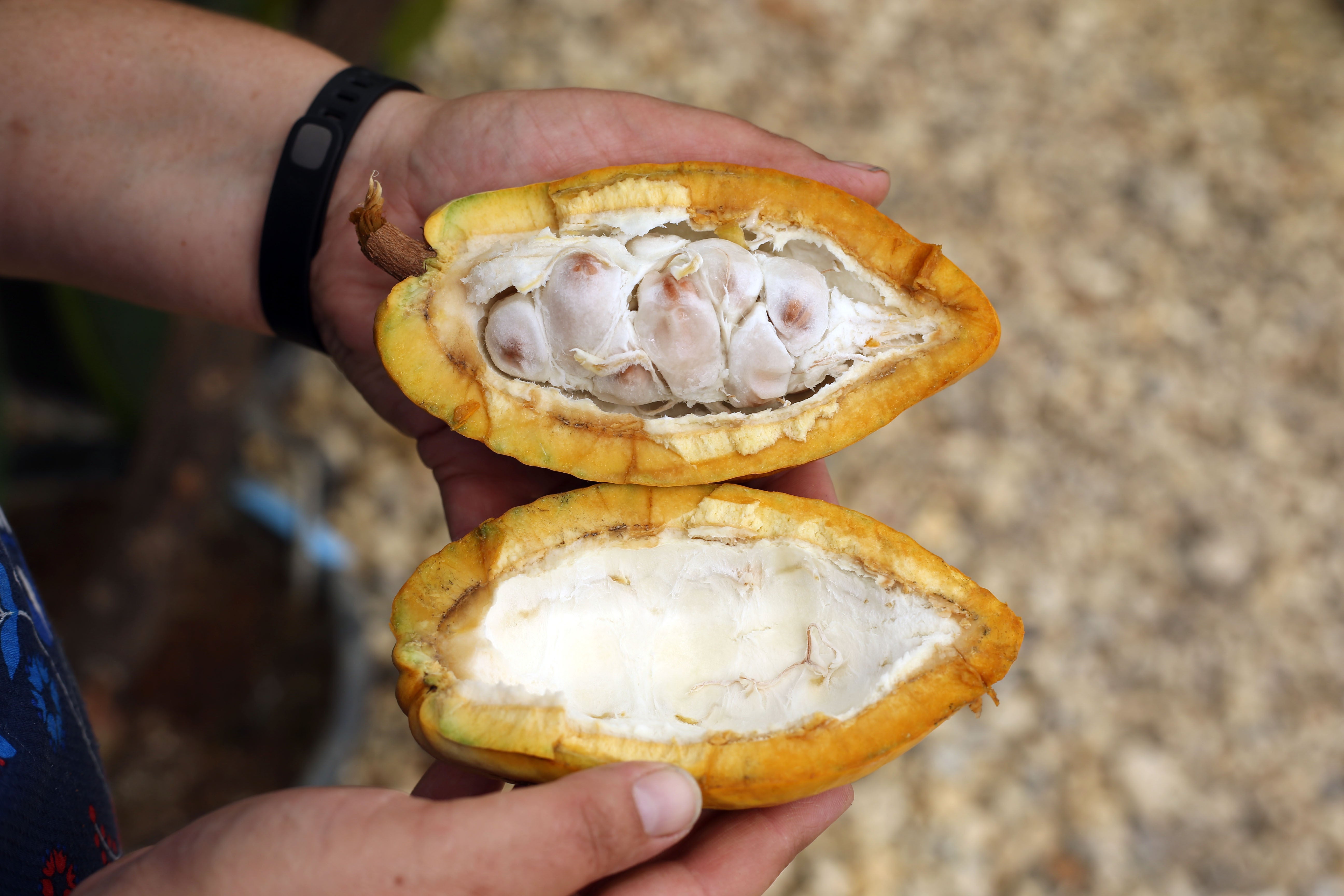Cocoa pills could reduce the risk of dying from cardiovascular disease – study
Researchers suggest the findings offer promising signals that cocoa flavanols could have a protective effect.

Your support helps us to tell the story
From reproductive rights to climate change to Big Tech, The Independent is on the ground when the story is developing. Whether it's investigating the financials of Elon Musk's pro-Trump PAC or producing our latest documentary, 'The A Word', which shines a light on the American women fighting for reproductive rights, we know how important it is to parse out the facts from the messaging.
At such a critical moment in US history, we need reporters on the ground. Your donation allows us to keep sending journalists to speak to both sides of the story.
The Independent is trusted by Americans across the entire political spectrum. And unlike many other quality news outlets, we choose not to lock Americans out of our reporting and analysis with paywalls. We believe quality journalism should be available to everyone, paid for by those who can afford it.
Your support makes all the difference.Taking a cocoa pill may reduce the risk of dying from heart or circulatory disease, new research suggests.
According to the study, people who took the supplement were 27% less likely to die from the conditions.
However, it did not reduce the overall likelihood of cardiovascular events – any incidents that may cause damage to the heart.
Researchers suggest the findings offer promising signals that cocoa flavanols could have a protective cardiovascular effect.
These findings merit further investigation to better understand the effects of cocoa flavanols on cardiovascular health
But eating lots of chocolate will not have the same effect, with the trial using a cocoa extract containing levels of cocoa flavanols – naturally occurring plant nutrients – that someone would not be able to get from tucking into their favourite treats.
Howard Sesso and JoAnn Manson, from the Division of Preventive Medicine at Brigham and Women’s Hospital, America, led the study team that looked at the outcomes of the Cocoa Supplement and Multivitamin Outcomes Study (Cosmos) study.
Dr Sesso said: “When we look at the totality of evidence for both the primary and secondary cardiovascular endpoints in Cosmos, we see promising signals that a cocoa flavanol supplement may reduce important cardiovascular events, including death from cardiovascular disease.
“These findings merit further investigation to better understand the effects of cocoa flavanols on cardiovascular health.”
Dr Manson said: “Previous studies have suggested health benefits of flavanols – compounds in several plant-based foods including cocoa, tea, grapes and berries.
“Cosmos was not a chocolate trial, rather, it’s a rigorous trial of a cocoa extract supplement that contains levels of cocoa flavanols that a person could never realistically consume from chocolate without adding excessive calories, fat and sugar to their diet.”
Researchers said previous smaller short-term trials found cardiovascular benefits for cocoa flavanols on blood pressure and blood vessel dilation.
Cosmos also found that a common multivitamin did not prevent cancer and cardiovascular events.
More than 21,000 participants were randomised to take daily capsules that contained 500mg cocoa flavanols, a multivitamin tablet, neither or both.
Some 410 participants taking cocoa extract and 456 taking the placebo had confirmed total cardiovascular events.
The study found the cocoa pills reduced total cardiovascular events by 10%, but researchers say this was not statistically significant.
They warn that the findings should be interpreted carefully, and further studies are needed.
Because the study ended after about 3.6 years, it was likely to be too short to detect whether the supplements could have affected cancer risk, according to the scientists.
– The findings are published in The American Journal of Clinical Nutrition.